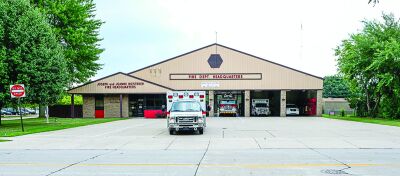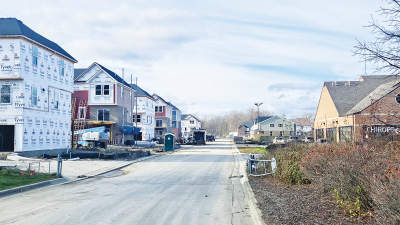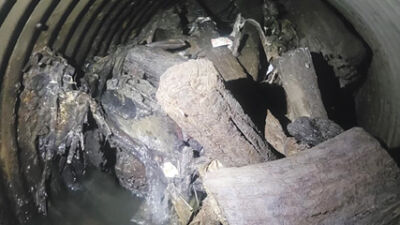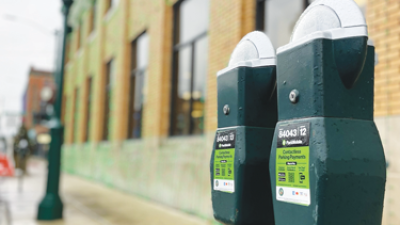ROSEVILLE — At its Nov. 12 meeting, the Roseville City Council updated the city’s fire code. This, according to Fire Chief Keith Jacobs, will help prevent an incident similar to the Goo Smoke Shop explosion in Clinton Township earlier this year.
“It will stop what happened in Clinton Township,” Jacobs said at the meeting. “It will definitely give us more teeth for situations like what happened in Clinton Township.”
Roseville Fire Marshal Bill Ciner said, in an interview following the meeting, the International Fire Code gets updated every three years. Ciner said this helps municipalities stay current on safety and technology. The city went from using the 2015 version of the code to the 2021 version, though a 2024 version is available. He said the city typically adopts an updated version of the International Fire Code every six years.
“Until all the bugs are worked out of it, we usually stay a code set back,” Ciner said.
Ciner said the city wanted to make sure it was up to date on its protocols for life safety. This allows the city to recommend a fire suppression system in commercial buildings or an alarm system. The amount and how hazardous chemicals must be stored hasn’t changed much, according to Ciner.
At the meeting, Councilwoman Jan Haggerty asked Jacobs if the inspections for hazardous materials are announced.
Jacobs said inspections by fire marshals and crews are announced.
“We can’t legally go into a building without letting them know we’re coming into a building,” Jacobs said. “They’re notified of the date and we stick with the date.”
“I just worry about them possibly moving items before the inspection and then returning them after the inspection,” Haggerty said.
“That is a possibility,” Jacobs said.
Jacobs clarified after the meeting that if a business isn’t responsive to an inspection, a court order could be obtained to inspect it.
The Fire Department does inspections based on the degree of risk associated with commercial buildings. Ciner said most high-risk buildings, which are usually industrial businesses, get inspections each year. He said businesses with a moderate risk, which includes many smoke shops, get looked at every two years.
“We are more about education,” Ciner said. “We’re not about going in and trying to find violations to fine them.”
The department gives a business 30 days to correct any deficiencies found. If there are lingering problems and a third inspection is needed, the business is charged a fee for the inspector to come out. Ciner said the businesses are “very good with compliance” in Roseville and will sometimes call if it’s been a while since their last inspection. Following the Goo explosion, Ciner said, smoke shops inspected in the city have all been in compliance.
Ciner said some of the big changes between 2015 and 2021 are the regulations surrounding lithium ion battery storage. This addresses charging stations for EV vehicles and businesses that recycle lithium ion batteries.
Another change involves the regulations surrounding food trucks. The changes add regulations on proper storage for propane cylinders and requirements for a fire suppression system inside the trucks.
Jacobs said the change in the ordinance will not impact the city’s building code.
The 2021 International Fire Code was used to update chapter 142, article 1, section 142-1 of the city’s ordinance.
Pump gets retroactively approved following emergency
At the Oct. 22 Roseville City Council meeting, City Manager Ryan Monroe announced the “catastrophic failure” of a pump at the Washington Street lift station. The failure happened the same day as the October meeting. Council unanimously approved receiving and filing documentation of the emergency purchase at its Nov. 12 meeting.
The lift station has three pumps. The new pump cost, with the field service, $35,625 and was purchased from Kennedy Industries Inc. in Wixom, according to a memo from Monroe.
“This pump services a large portion of the City’s eastern sewage system which serves over 1,000 homes and businesses,” the memo states. “Because of this failure and the number of homes this pump protects, a new pump had to be purchased immediately.”
The retroactive single-source purchase was made possible through the city’s ordinance.
Department of Public Services Director Rob DeBruyn said in an interview after the Oct. 22 meeting that a bearing in one of the pumps caused the failure.
“We had an untimely failure of one of the pumps at the Washington lift station and that is not an immediate concern in dry weather situations or in simple rains, but it would be a concern in a heavy rain situation,” DeBruyn said. “We do in fact have the equipment on-site, owned by the city, to bypass a pump in the event we have storms, but that’s not a long term option.”
 Publication select ▼
Publication select ▼



















